10 facts to celebrate Leipzig's 1,000th birthday
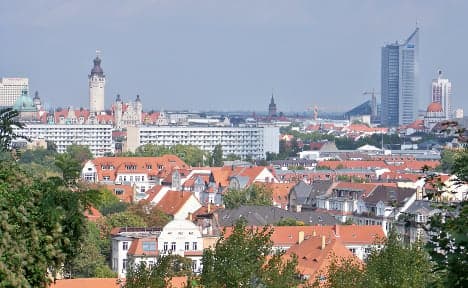
This weekend the city of Leipzig is celebrating its 1,000th anniversary, since it was first mentioned by the chronicler Thietmar of Merseburg in 1015. The Local gives some insight into one of Germany's most vibrant cities.
With a population of just over 520,000, Leipzig is the second largest city in the state of Saxony in eastern Germany, just behind Dresden, the state capital.
Since German reunification in 1990, Leipzig has been rejuvenated. Today its nicknames include the "Boomtown of Eastern Germany", "Hypezig" and "The New Berlin," because of its combination of affordable living costs and great nightlife, music and art scenes.
In fact for most people in the know, it's accepted that Leipzig is the new capital of cool in the Federal Republic.
To mark the city's birthday, The Local brings you ten little-known facts that give a small flavour of the variety of culture and history this east German treasure has to offer:
1) Bach is buried here
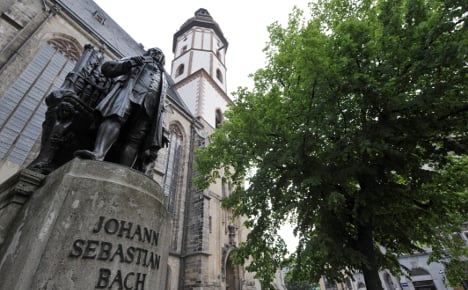
One of the greatest German composers Johann Sebastian Bach is buried in St. Thomas' Church, where he was leader of the choir. He was originally buried in an unmarked grave until 1894 when his remains were moved to St John's Church, which was destroyed by Allied bombing during the Second World War. His grave was then moved again to St Thomas' Church, amid doubts over the authenticity of his remains after so many relocations. Leipzig is somewhat of a central hub for classical music, as its opera house and orchestra are also world-renowned
2) You can visit Goethe's local boozer
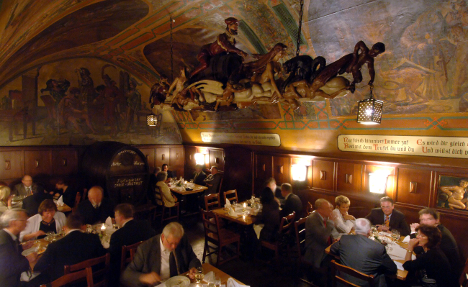
While a student a Leipzig, the father of German literature Johann von Goethe spent lots of time eating and drinking in Auerbach's Cellar, which is now one of the city's most popular restaurants. Goethe loved it so much that he used it as the setting for the well-known scene in Faust: Part One, in which Faust first meets Mephistopheles.
3) It hosts the oldest trade fair in the world
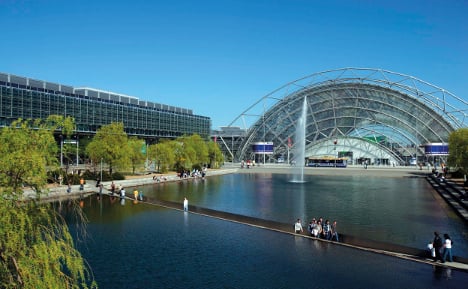
Leipzig has been built on trade throughout its history because of its location at the intersection between two important medieval trade routes. The Trade Fair dates back to 1165. In the 18th century the city was called "the marketplace of Europe". The city also hosts a major book fair, which is the second largest in Germany behind Frankfurt's.
4) You can frequent Europe's oldest, continuous coffee shop
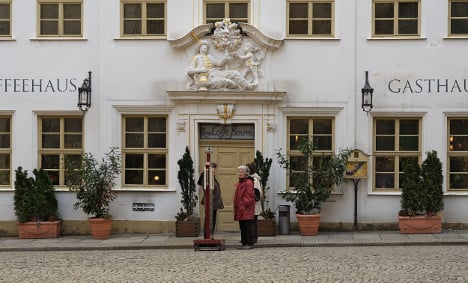
Zum Arabischen Coffe Baum is the oldest surviving coffee house and restaurant in Europe which has been continuously in operation. Today it is a restaurant, cafe, and museum in one, documenting the history of the Saxons' long-established love of coffee. It dates back to 1720, when Europeans got the coffee bug from the Ottoman Empire.
5) German nationalism was born here
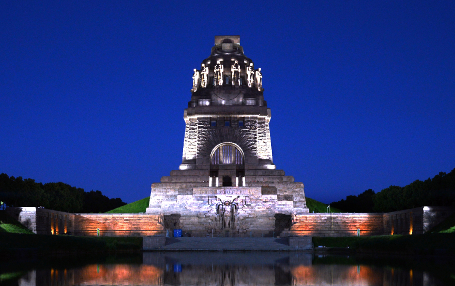
The Battle of Leipzig, also known as the Battle of Nations, ended Napoleon's presence east of the Rhine, as he was defeated by an army led by Prussia, but included a number of other German states. In the aftermath of the victory the colours of the uniforms worn there began to symbolize liberation from Napoleon and a desire for German national unity. These are the red, black and gold that make up Germany's national flag today.
6) The fall of the Berlin Wall started in Leipzig
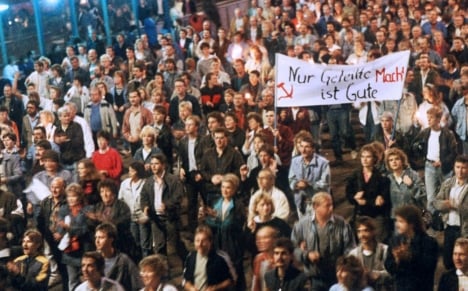
Leipzig's Nikolaikirche became the place where the most prominent mass protests against the East German regime took place. The weekly prayers for peace on Monday evenings developed into the Montagsdemonstrationen (Monday demonstrations) in October 1989 that were a major factor in the fall of the wall later that year.
7) Rammstein's frontman comes from Leipzig
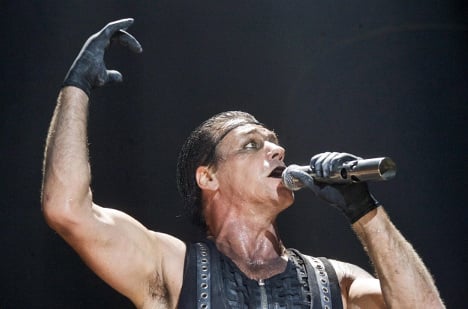
Till Lindemann, lead singer of German industrial-metal band Rammstein was born in Leipzig. The city has a thriving heavy-metal scene, but also offers a music scene as eclectic as Hamburg's or Berlin's.
8) It has the world's largest free-standing advent calendar
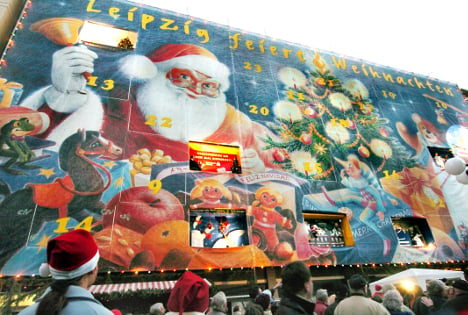
Erected in December 1997 for the first time, the world's largest free-standing advent calendar is one of the major attractions of Leipzig's annual Christmas market. Even all the Glühwein and Lebkuchen in the world can't compete with that.
9) Leipzig hosts one of the world's largest "dark" music festivals
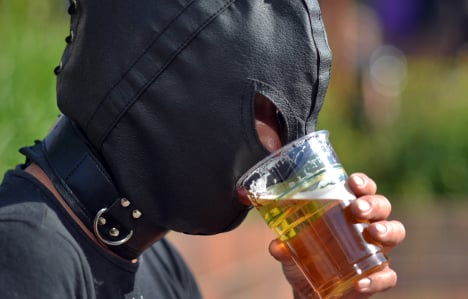
Wave-Gotik-Treffen is one of the world's major festivals of "dark" music and art. For those still scratching their heads, this means anything from Gothic rock, EBM, Industrial, Noise, Darkwave, Neofolk, Gothic Metal and Deathrock. Good to clear that up. It typically attracts up to 25,000 visitors every year and takes place over Pentecost weekend - which Christians in Leipzig must love.
10) Its local beer isn't local and sounds awful
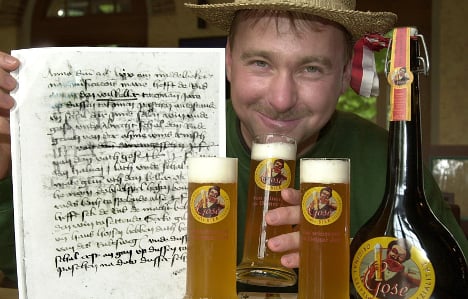
It may not originate from Leipzig, but this peculiar brew has been adopted by the city. Gose belongs to the same family of sour wheat beers as Belgian Witbier and Berliner Weisse. Gose's taste profile has "a lemon tartness, herbal characteristic and strong saltiness", which may not sound too appetizing, but Leipzigers seem to like it.
Comments
See Also
With a population of just over 520,000, Leipzig is the second largest city in the state of Saxony in eastern Germany, just behind Dresden, the state capital.
Since German reunification in 1990, Leipzig has been rejuvenated. Today its nicknames include the "Boomtown of Eastern Germany", "Hypezig" and "The New Berlin," because of its combination of affordable living costs and great nightlife, music and art scenes.
In fact for most people in the know, it's accepted that Leipzig is the new capital of cool in the Federal Republic.
To mark the city's birthday, The Local brings you ten little-known facts that give a small flavour of the variety of culture and history this east German treasure has to offer:
1) Bach is buried here

One of the greatest German composers Johann Sebastian Bach is buried in St. Thomas' Church, where he was leader of the choir. He was originally buried in an unmarked grave until 1894 when his remains were moved to St John's Church, which was destroyed by Allied bombing during the Second World War. His grave was then moved again to St Thomas' Church, amid doubts over the authenticity of his remains after so many relocations. Leipzig is somewhat of a central hub for classical music, as its opera house and orchestra are also world-renowned
2) You can visit Goethe's local boozer

While a student a Leipzig, the father of German literature Johann von Goethe spent lots of time eating and drinking in Auerbach's Cellar, which is now one of the city's most popular restaurants. Goethe loved it so much that he used it as the setting for the well-known scene in Faust: Part One, in which Faust first meets Mephistopheles.
3) It hosts the oldest trade fair in the world

Leipzig has been built on trade throughout its history because of its location at the intersection between two important medieval trade routes. The Trade Fair dates back to 1165. In the 18th century the city was called "the marketplace of Europe". The city also hosts a major book fair, which is the second largest in Germany behind Frankfurt's.
4) You can frequent Europe's oldest, continuous coffee shop

Zum Arabischen Coffe Baum is the oldest surviving coffee house and restaurant in Europe which has been continuously in operation. Today it is a restaurant, cafe, and museum in one, documenting the history of the Saxons' long-established love of coffee. It dates back to 1720, when Europeans got the coffee bug from the Ottoman Empire.
5) German nationalism was born here

The Battle of Leipzig, also known as the Battle of Nations, ended Napoleon's presence east of the Rhine, as he was defeated by an army led by Prussia, but included a number of other German states. In the aftermath of the victory the colours of the uniforms worn there began to symbolize liberation from Napoleon and a desire for German national unity. These are the red, black and gold that make up Germany's national flag today.
6) The fall of the Berlin Wall started in Leipzig

Leipzig's Nikolaikirche became the place where the most prominent mass protests against the East German regime took place. The weekly prayers for peace on Monday evenings developed into the Montagsdemonstrationen (Monday demonstrations) in October 1989 that were a major factor in the fall of the wall later that year.
7) Rammstein's frontman comes from Leipzig

Till Lindemann, lead singer of German industrial-metal band Rammstein was born in Leipzig. The city has a thriving heavy-metal scene, but also offers a music scene as eclectic as Hamburg's or Berlin's.
8) It has the world's largest free-standing advent calendar

Erected in December 1997 for the first time, the world's largest free-standing advent calendar is one of the major attractions of Leipzig's annual Christmas market. Even all the Glühwein and Lebkuchen in the world can't compete with that.
9) Leipzig hosts one of the world's largest "dark" music festivals

Wave-Gotik-Treffen is one of the world's major festivals of "dark" music and art. For those still scratching their heads, this means anything from Gothic rock, EBM, Industrial, Noise, Darkwave, Neofolk, Gothic Metal and Deathrock. Good to clear that up. It typically attracts up to 25,000 visitors every year and takes place over Pentecost weekend - which Christians in Leipzig must love.
10) Its local beer isn't local and sounds awful

It may not originate from Leipzig, but this peculiar brew has been adopted by the city. Gose belongs to the same family of sour wheat beers as Belgian Witbier and Berliner Weisse. Gose's taste profile has "a lemon tartness, herbal characteristic and strong saltiness", which may not sound too appetizing, but Leipzigers seem to like it.
Join the conversation in our comments section below. Share your own views and experience and if you have a question or suggestion for our journalists then email us at [email protected].
Please keep comments civil, constructive and on topic – and make sure to read our terms of use before getting involved.
Please log in here to leave a comment.